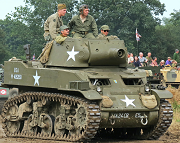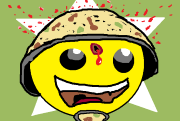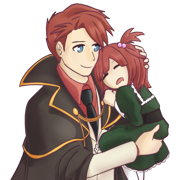|
HorrificExistence posted:Hitler himself was counting on a long war with the British and French in France. Soviet "defense in depth" was just an excuse for losing 6 months straight because they thought the nazis were their allies. The primary reason the Soviet Union couldn't crush the German offensive wasn't because they had no idea what they were doing it was because the Soviet Union was (rightly) worried about a simultaneous invasion in from Japan in eastern Russia. A significant number of troops were tied up on the other side of Russia garrisoning their eastern territories until the US entered the war and took the full unwavering attention of the Japanese armed forces. This allowed the Soviets to move their garrison forces from the eastern territories to the European front.
|
|
|
|

|
| # ? Apr 29, 2024 22:30 |
|
Not true. There were no movements from the japanese border through out the entirety of the war, and they already knew japan wasn't interested in going north because of richard sorge.
|
|
|
|
AnEdgelord posted:The primary reason the Soviet Union couldn't crush the German offensive wasn't because they had no idea what they were doing it was because the Soviet Union was (rightly) worried about a simultaneous invasion in from Japan in eastern Russia. A significant number of troops were tied up on the other side of Russia garrisoning their eastern territories until the US entered the war and took the full unwavering attention of the Japanese armed forces. This allowed the Soviets to move their garrison forces from the eastern territories to the European front. There was also a significant element of not knowing what they were doing, given the purges (a lot of vacant posts had suddenly been replaced by new officers who were either under-experienced/qualified or getting used to their new role, and all of them had been made rather acutely aware that significant penalties could follow anything seen as too deviant from party lines). A lot of the people who'd advocated, developed, and studied Deep Battle had gotten shot, imprisoned, or simply kicked out from their posts in the years immediately before the war, so it's not surprising it wasn't really in vogue in 1941. It came back into fashion when everyone discovered it was a really good idea again. EDIT: It's notable, for example, that the goals of even the winter counteroffensives around Moscow are aiming towards something like Deep Battle- but the primary exploitation arm doctrine called for had been utterly shattered in the initial panicked defence, so foot troops are trying to strike at the operational rear and conduct encirclements. It's hardly "making it up as you go along". spectralent fucked around with this message at 21:47 on Jan 9, 2018 |
|
|
|
spectralent posted:There was also a significant element of not knowing what they were doing, given the purges (a lot of vacant posts had suddenly been replaced by new officers who were either under-experienced/qualified or getting used to their new role, and all of them had been made rather acutely aware that significant penalties could follow anything seen as too deviant from party lines). A lot of the people who'd advocated, developed, and studied Deep Battle had gotten shot, imprisoned, or simply kicked out from their posts in the years immediately before the war, so it's not surprising it wasn't really in vogue in 1941. It came back into fashion when everyone discovered it was a really good idea again. Well, the purges were a while in the past at this point, though their effects were still felt in that there were never really enough officers to administrate and lead the army. There were also huge problems in that untis were simply too large and unwieldy compared to the number and quality of officers and other trained personnel available, not to mention that organization and equipment was far from uniform, a lot of divisions had almost none of the items they were supposed to possess according to their TO&E, and were instead only partially supplied with inferior and obsolete models, which contributed to the actual in-field strength of Soviet units bearing almost no relation to the on-paper strength.
|
|
|
|
Stairmaster posted:Not true. There were no movements from the japanese border through out the entirety of the war, and they already knew japan wasn't interested in going north because of richard sorge. There were no movements during the war but there were several before the war https://en.wikipedia.org/wiki/Battle_of_Lake_Khasan https://en.wikipedia.org/wiki/Battles_of_Khalkhin_Gol Also https://en.wikipedia.org/wiki/Richard_Sorge#Japan_1933 quote:In mid-September 1941, he informed the Soviets that Japan would not attack the Soviet Union in the near future, which allowed the command to transfer 18 divisions, 1,700 tanks, and over 1,500 aircraft from Siberia and the Far East to the Western Front against Nazi Germany during the most critical months of the Battle for Moscow, one of the turning points of World War II. I fully admit being ignorant of Richard Sorge's involvement and crediting too much to US involvement in the pacific but my point about the garrison being tied up still stands Edit: rewrote first part with a new links AnEdgelord fucked around with this message at 22:03 on Jan 9, 2018 |
|
|
|
AnEdgelord posted:There were no movements during the war but there were several before the war Considering the scale of fighting on the eastern front and the scale of Soviet losses in 1941, those forces being present for the German invasion in all likelihood wouldn't have been even close to allowing the Soviets to crush the German invasion. With the scale of the disaster if those units had been on the front when the invasion came it doesn't seem that far fetched that those units could have gotten caught up in the rout, become surrounded or otherwise put out of commission. The Soviet armed forces in 1941 had a lot of problems that simply the presence of some 200-300 000 of their most experienced troops likely could have changed so much at that point.
|
|
|
|
AnEdgelord posted:The primary reason the Soviet Union couldn't crush the German offensive wasn't because they had no idea what they were doing it was because the Soviet Union was (rightly) worried about a simultaneous invasion in from Japan in eastern Russia. A significant number of troops were tied up on the other side of Russia garrisoning their eastern territories until the US entered the war and took the full unwavering attention of the Japanese armed forces. This allowed the Soviets to move their garrison forces from the eastern territories to the European front. Japan was also there prior to the war so Soviet doctrine should have taken them into account.
|
|
|
|
Randarkman posted:Well, the purges were a while in the past at this point, though their effects were still felt in that there were never really enough officers to administrate and lead the army. There were also huge problems in that untis were simply too large and unwieldy compared to the number and quality of officers and other trained personnel available, not to mention that organization and equipment was far from uniform, a lot of divisions had almost none of the items they were supposed to possess according to their TO&E, and were instead only partially supplied with inferior and obsolete models, which contributed to the actual in-field strength of Soviet units bearing almost no relation to the on-paper strength. Yes, but when it comes to doctrine, it's unarguable that a lot of people involved in the formation and development of deep battle were purged; Tukhachevsky himself was shot. Triandafillov, who Zhukov credited with his successes, had died earlier from an unrelated (
|
|
|
|
spectralent posted:Yes, but when it comes to doctrine, it's unarguable that a lot of people involved in the formation and development of deep battle were purged; Tukhachevsky himself was shot. Triandafillov, who Zhukov credited with his successes, had died earlier from an unrelated ( Oh, yeah, I'm not arguing that the Soviets did not have a military doctrine. Anything else would have been rather ludicrous. The Red Army was an organizational mess in 1941, that doesn't mean that there didn't exist a military doctrine at its foundation, even if it may seem to have become lost in the chaos, at least temporarily. e: "that doesn't meet it"? What? Randarkman fucked around with this message at 23:02 on Jan 9, 2018 |
|
|
|
Randarkman posted:Oh, yeah, I'm not arguing that the Soviets did not have a military doctrine. Anything else would have been rather ludicrous. The Red Army was an organizational mess in 1941, that doesn't meet it that there didn't exist a military doctrine at its foundation, even if it may seem to have become lost in the chaos, at least temporarily. Okay, sounds like we're angrily agreeing then 
|
|
|
|
HorrificExistence posted:Both soviet and nazi "doctrines" were made up after the fact to explain why they had work. They didn't actually exist in 1939. "Blitzkrieg" as the West saw it was largely made up by Western observers, rather than a specific doctrine consciously adopted by the Germans, but that doesn't mean German military doctrine as a whole was made up. The "blitzkrieg" didn't exist, but Guderian's theories on maneuver warfare sure did.
|
|
|
|
If Germany had doctrines how did they lose the war? Check mate, nazis.
|
|
|
|
Main Paineframe posted:"Blitzkrieg" as the West saw it was largely made up by Western observers, rather than a specific doctrine consciously adopted by the Germans, but that doesn't mean German military doctrine as a whole was made up. The "blitzkrieg" didn't exist, but Guderian's theories on maneuver warfare sure did. The advanced doctrine of trying to encircle the enemy.
|
|
|
|
rear end struggle posted:The advanced doctrine of trying to encircle the enemy. Well, the doctrine in this case could be seen more as a theory on how to achieve the desired result rather than just saying "this is what we want do". I don't really know what you're getting at.
|
|
|
|
rear end struggle posted:The advanced doctrine of trying to encircle the enemy. Itís the goal of any battle. The method changes, but that stays the same, from Og vs Ook using rocks to balls-out modern warfare.
|
|
|
|
rear end struggle posted:The advanced doctrine of trying to encircle the enemy. That literally everyone else had decided was a practical impossibility.
|
|
|
|
Wasn't 90% of the German "blitzkrieg" just the fact they had automatic weapons and an actual army, and were facing largely militias/very untrained groups with little experience that were still using single shot/preWW1 stuff? Like I've read more then a few books that have gone into how absolute poo poo the Germans were at actual combat as soon as they faced a force that wasn't fighting them at either a tech disadvantage/had actually been in a conflict before. They pushed so quickly not because of advanced military techniques, but because they had the bigger guns initially.
|
|
|
|
The French army wasn't the best, but I would not characterize it, or the British army, that way.
|
|
|
|
Wasn't the French army, prior to the fall of France, considered one of the largest on the planet at the time with some of the most modern (for the time) equipment available to them? Their airforce had some major shortcomings but the main problem was more along the lines of trying to win a war by sitting on your hands and totally dysfunctional leadership that was unable to respond to German offensives. They pretty much folded when the Germans raced through the low countries and broke through France's borders with limited resistance.
|
|
|
|
Rookersh posted:Wasn't 90% of the German "blitzkrieg" just the fact they had automatic weapons and an actual army, and were facing largely militias/very untrained groups with little experience that were still using single shot/preWW1 stuff?
|
|
|
|
Rookersh posted:Wasn't 90% of the German "blitzkrieg" just the fact they had automatic weapons and an actual army, and were facing largely militias/very untrained groups with little experience that were still using single shot/preWW1 stuff? What? That's not it at all. German infantry were armed pretty much the same way as the infantry of any other, bolt action rifles backed up by one or two light machine guns per squad. The same goes for basically every other army. The wider prevalence of automatic weapons comes later in the war, and in a way mirrors the same development as in other armies, though at no point did submachine guns or the late war German assault rifles come close to replacing bolt action rifles. Comparing armies and their effectiveness in terms of infantry equipment is a pretty poor way of doing it anyway, especially as it was so similar, the only country that really stands out in this regards is the US which by late 43 equipped all its soldiers with semi-automatic rifles, though their squad machine guns were somewhat lackluster in the role of machine gun so it evens out anyway. And there really is nothing to indicate the Germans being absolute poo poo at combat, I don't even know what books you would have read to give you that impression other than pulpy adventure novels from the 50s and 60s. They would fight tenaciously and even towards the end of the war it was noted how effective they could be in defensive actions, being notorious for their tactics in wooded areas and such with mines, booby traps, hidden snipers, lightly held lines that were pre-sigthed for mortars and light artillery in advance of a counter-attack, all that kind of stuff. You'll find alot of Wehraboos hideously exaggerating the effectiveness of the German army and its soldiers, but to say they were absolute poo poo at combat is just weird and in total contradiction ot the facts. As for the tech edge that's not as marked as you'd think, and in some cases not really at all present. Most German tanks weren't all that special, though their guns (on the tanks) from about mid-war onwards were usually longer ranged with better penetrating power than that of their enemies, especially the western allies. The greatest German advantage early on in tanks were that they fielded them concentrated together in large units rather than spread out among various formations and lines, and that they had radios in all their tanks, something the French had not and neither had the Soviets (though they did so later). Other than that the Germans had some really good artillery and AT weapons that they put to good use that really stand out. But then it's also worth considering that the German army was motorized to a much lesser degree than most of their enemies, with the exception of Poland and the small countries, and relied on horses to tow guns and goods and soldiers to just march everywhere. There really is not that much merit to the argument of a decisive tech advantage. Psychotic Weasel posted:Wasn't the French army, prior to the fall of France, considered one of the largest on the planet at the time with some of the most modern (for the time) equipment available to them? Their airforce had some major shortcomings but the main problem was more along the lines of trying to win a war by sitting on your hands and totally dysfunctional leadership that was unable to respond to German offensives. The reality was somewhat different compared to the image though. The French had a lot of good equipment but it kind of fell apart in how it was employed, to put it shortly their strategy was far too rigid and high command too divided and politicized and command on the battlefield too centralized and inflexible. An example, French for instance put little stock in radios and instead put their faith in fixed teleophone lines and communication, which made sense for them given that they preferred and expected positional trench warfare and distrusted the operational security of using radio waves, but this contributed to it all falling apart when the front lines collapsed. As for the large army part, that is true, but the French had essentially exhausted their reserves fielding this large army by insituting almost universal 3-year conscription to fill out the army (France had since the late 19th century suffered from an aging population due to a sharp decline in population growth, especially compared with Germany), they were not in the best of positions to replace their losses and the conscription law was hugely controversial as well. The military seems to have intended to make extensive use of colonial troops from Africa to make up for this manpower deficit and to take the brunt of the losses. Randarkman fucked around with this message at 02:41 on Jan 10, 2018 |
|
|
|
Randarkman posted:As for the tech edge that's not as marked as you'd think, and in some cases not really at all present. Most German tanks weren't all that special, though their guns (on the tanks) from about mid-war onwards were usually longer ranged with better penetrating power than that of their enemies, especially the western allies. The greatest German advantage early on in tanks were that they fielded them concentrated together in large units rather than spread out among various formations and lines, and that they had radios in all their tanks, something the French had not and neither had the Soviets (though they did so later). Re: technology, the Germans also had 3-man turrets when a lot of other nations were using 1- or 2-man turrets, which made a big difference in reaction time and accuracy. Re: doctrine, my understanding is that the German doctrine was really just an extension of their WWI infantry storm and infiltration tactics, adapted to radio and mechanization. Ideas about bypassing centers of resistance and exploiting breakthroughs were clearly present in WWI, but then never worked on a strategic level because the infantry would outrun its logistics and falter. (Or stop attacking so it could eat captured rations and drink the booze.) Once the spearhead was armored and motorized, that wasn't an issue, or at least not as long as the war was over soon enough that they could win before the leading edges wore down.
|
|
|
|
The Germans didn't expect to win so quickly, but they had managed to hit upon things like the right way to use tanks, while the French and Soviets had a number of problems when they were invaded, so things went in the Germans' favor a lot faster than anyone (including the Germans themselves) had anticipated. Some Western observers assumed that the Germans had built their whole doctrine around balls-to-the-wall incredibly rapid advances, when it was really just that they were fighting effectively with the right tactics and decently organized and competent leadership right from the start, while everyone else weren't. In the post-war era, there were a lot of people who had various vested interests in portraying the Wehrmacht as a particularly effective fighting force, so the myth of the blitzkrieg as some super-special German doctrine that other armies didn't have was strongly encouraged.
|
|
|
|
I really wanna play HOI4 but I dont wanna play another 50 hours and then be burnt out in time for the DLC 
|
|
|
|
buglord posted:I really wanna play HOI4 but I dont wanna play another 50 hours and then be burnt out in time for the DLC Speaking of which is there any release date for that yet? I didn't see one on steam and I want to hold off on any far-eastern campaigns until it comes out.
|
|
|
buglord posted:I really wanna play HOI4 but I dont wanna play another 50 hours and then be burnt out in time for the DLC Delay
|
|
|
|
|
re: the USSR sucking hard at first Stalin was ridiculously paranoid and incompetent on such matters and argued with Zhukov every single time: Zhukov, however and fortunately, knew how to deal with him (unlike other generals who were considered anti-revolutionaries and traitors) but it took like two weeks every time a plan came forward because Stalin would call it ridiculous or propose some bullshit course of action and he had to be dissuaded (not to mention that he actually expected Hitler to follow through on molotov-ribbentrop at least for a very long while, Stalin was legit distressed when Barbarossa started even though the surviving competent red army high command and the skilled members of the supreme soviet were sure as gently caress of it) if there is anything the trotskyites were right about is that Leon would probably have readied the USSR for war full speed at the moment there were Nazis in Czechoslovakia
|
|
|
|
dead comedy forums posted:if there is anything the trotskyites were right about is that Leon would probably have readied the USSR for war full speed at the moment there were Nazis in Czechoslovakia Stalin did do this though. There was a substantial buildup of the armed forces all the time leading up to war, the Molotov-Ribbentropp pact was part of the whole readying effort, aimed among other points at buying time (as well as obtaining a free hand to annex and dominate neighbors) Anyway the reasons for the Soviets doing so badly at first (and even then they did managed to hold up the advance and offer enough resistance in order to make a counter-attack in the winter, an ill-fated one, but still) come down to more multifaceted reasons than simply "Stalin stupid and bad". It's kind of in the same ballpark as laying all the "blame" for Germany losing the war on Hitler.
|
|
|
|
Randarkman posted:Stalin did do this though. There was a substantial buildup of the armed forces all the time leading up to war, the Molotov-Ribbentropp pact was part of the whole readying effort, aimed among other points at buying time (as well as obtaining a free hand to annex and dominate neighbors) I gotta go find the literature about it (and this thread might be right on to ask): what I have read about it was that most of the "Stalin was extremely clever and he did right" came from the immediate aftermath of the war, through a concerted propaganda effort for the populace (in which the cult of personality reached its apex probably) and very heavy political persecution of internal officers and government members - while also defending the politburo's favorites but incompetent guys - that were critical of the administration and war affairs, but could not be removed due to the tremendous probability of backfiring and losing the war I think it was Khruschev that specifically mentioned the example of Zhukov's successful battle plans and clever ideas being said that they were actually Stalin's, because Zhukov got very popular and Stalin suddenly started raving about how he was always a menace (typical) but he couldn't get rid of him without turning the entire Red Army hostile Randarkman posted:Anyway the reasons for the Soviets doing so badly at first (and even then they did managed to hold up the advance and offer enough resistance in order to make a counter-attack in the winter, an ill-fated one, but still) come down to more multifaceted reasons than simply "Stalin stupid and bad". It's kind of in the same ballpark as laying all the "blame" for Germany losing the war on Hitler. But yeah, the main problem is getting through stuff that isn't screamed at as "FILTHY ANTIREVOLUTIONARY REVISIONISM" or "CAPITALIST PROPAGANDA BESMIRCHING GLORIOUS STALIN" because it doesn't follow the period's line of "everything done in this period was cool and good" (one good thing must be said though: Stalin wasn't a hellish micromanager and that might have been a real key factor lol)
|
|
|
|
Randarkman posted:Stalin did do this though. There was a substantial buildup of the armed forces all the time leading up to war, the Molotov-Ribbentropp pact was part of the whole readying effort, aimed among other points at buying time (as well as obtaining a free hand to annex and dominate neighbors) stalin ignoring the multiple intelligence assets tell him the day of the invasion down to the hour can only be described as stupid and bad
|
|
|
|
Randarkman posted:Stalin did do this though. There was a substantial buildup of the armed forces all the time leading up to war, the Molotov-Ribbentropp pact was part of the whole readying effort, aimed among other points at buying time (as well as obtaining a free hand to annex and dominate neighbors) Stalin was definitely in the process of strengthening the Red Army, and it would have been much more prepared if Germany had attacked a year or two later. Unfortunately for them, Hitler realized that and was under no obligation to play along. Stalin thought there was no way Hitler would attack that soon, and therefore felt safe in making a short-term mess of the Red Army in pursuit of long-term improvements, which bit him hard when the Germans attacked right into that short-term mess and hit the Soviets right when they were least prepared. Stalin certainly had sensible reasons to think that Hitler wouldn't attack for another year or two. But there was plenty of intel that said otherwise, which he ignored.
|
|
|
|
dead comedy forums posted:I gotta go find the literature about it (and this thread might be right on to ask): what I have read about it was that most of the "Stalin was extremely clever and he did right" came from the immediate aftermath of the war, through a concerted propaganda effort for the populace (in which the cult of personality reached its apex probably) and very heavy political persecution of internal officers and government members - while also defending the politburo's favorites but incompetent guys - that were critical of the administration and war affairs, but could not be removed due to the tremendous probability of backfiring and losing the war Oh, I didn't mean to say that Stalin did everything right and didn't do stuff that was bad and stupid. I just think that hoisting all the Red Army's faults on Stalin and the purges doesn't give you the whole picture and assuming that had it not been for Stalin and whatever the Soviets would have crushed the German invasion in a year might not be the most productive way of looking at things.
|
|
|
|
Randarkman posted:The greatest German advantage early on in tanks were that they fielded them concentrated together in large units rather than spread out among various formations and lines, and that they had radios in all their tanks, something the French had not and neither had the Soviets (though they did so later). Again it's worth noting the intent was to include radios in soviet tanks (at least modern ones, the soviet union had the world's largest obsolete tank fleet as well), they just weren't producing enough radios so they were concentrated first and foremost in heavy tanks. You start seeing radios appearing on the /85, for instance, with lend lease making up the difference and the resumption of production in reclaimed territory. Randarkman posted:Anyway the reasons for the Soviets doing so badly at first (and even then they did managed to hold up the advance and offer enough resistance in order to make a counter-attack in the winter, an ill-fated one, but still) come down to more multifaceted reasons than simply "Stalin stupid and bad". It's kind of in the same ballpark as laying all the "blame" for Germany losing the war on Hitler. A hell of a lot of bad turnouts are Stalin insisting stuff be done, though.
|
|
|
|
spectralent posted:Again it's worth noting the intent was to include radios in soviet tanks (at least modern ones, the soviet union had the world's largest obsolete tank fleet as well), they just weren't producing enough radios so they were concentrated first and foremost in heavy tanks. You start seeing radios appearing on the /85, for instance, with lend lease making up the difference and the resumption of production in reclaimed territory. Did the KV-1s have radios? I know that the T-34/76 was produced without either a radio or a radio-operator in mind, though there seem to have been variant command tanks for company commanders and up that included radios (though of course they couldn't use said radios to communicate with their own compamny) though as you say this was likely with the knowledge that they didn't have enough radios (and probably not enough trained radio operators, something large portions of the Red Army suffered from towards the end). The 85mm T-34 got a new much larger turret that incorporated a shielded radio set. spectralent posted:A hell of a lot of bad turnouts are Stalin insisting stuff be done, though. Oh yeah.
|
|
|
|
dead comedy forums posted:(one good thing must be said though: Stalin wasn't a hellish micromanager and that might have been a real key factor lol) His habit of calling people up out of the blue at 4 AM to talk to them about a scientific paper or concerto they wrote was just one example of his hands-off approach. He also did those "Nobody retreats from here" orders that always work so well. Gort fucked around with this message at 10:09 on Jan 10, 2018 |
|
|
|
Gort posted:His habit of calling people up out of the blue at 4 AM to talk to them about a scientific paper or concerto they wrote was just one example of his hands-off approach. My men keep retreating instead of fighting, I demand proper representation of Order 227 by forcing my divisions who have lost a battle to charge instead of fall back*! * i know this didnt happen a ton but I like being horrendously wasteful when playing this game. I call it the True Dictator Experience (tm)
|
|
|
|
Don Gato posted:My men keep retreating instead of fighting, I demand proper representation of Order 227 by forcing my divisions who have lost a battle to charge instead of fall back*! This is coming in the next expansion: quote:Here is a breakdown of the abilities:
|
|
|
|
the german division templates in kaiserreich are really something. i don't suppose there's an easy way to group select all divisions of a specific template?
|
|
|
|
VostokProgram posted:the german division templates in kaiserreich are really something. 1. Give the division template an easy-to-recognise icon. 2. Click the army icon in the top-right of the screen 3. Sort your divisions by type 4. Hold down shift and click 300 times
|
|
|
|

|
| # ? Apr 29, 2024 22:30 |
|
VostokProgram posted:the german division templates in kaiserreich are really something. Put all your divisions into one army and double click a division in the list
|
|
|



























